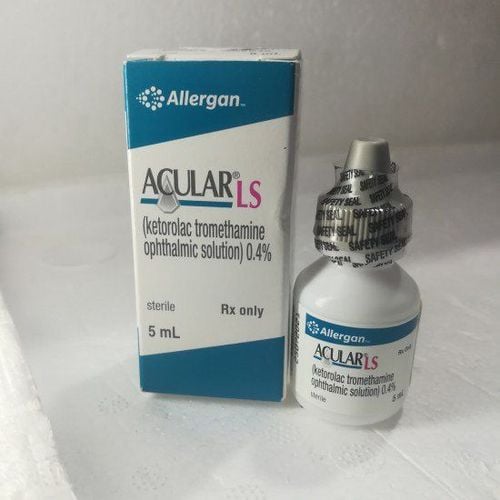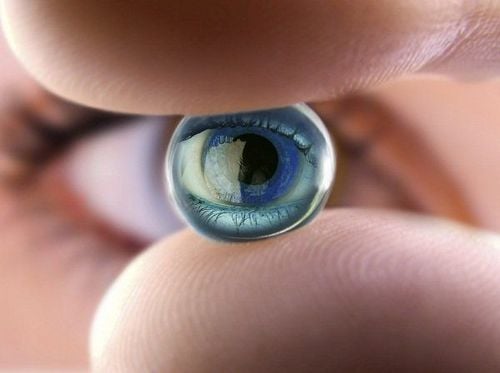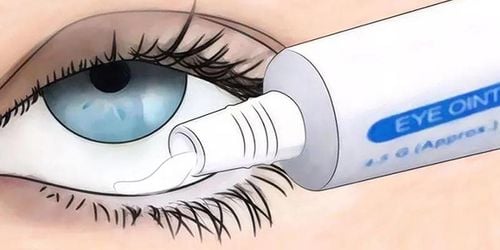This is an automatically translated article.
The article was professionally consulted with Specialist Doctor I Nguyen Thi Bich Nhi - Ophthalmologist - General Surgery Department - Vinmec Nha Trang International General Hospital.Cataracts are a common ophthalmic problem in the elderly and a leading cause of blindness. Cataract surgery is the most effective treatment for this condition.
1. What is cataract surgery?
The lens is a transparent lens, located inside the eye, that helps focus light on the retina and helps filter ultraviolet rays in sunlight. The vitreous in a healthy person with no known eye problems is clear, curvilinear, and within physiological limits.When insoluble protein molecules accumulate in the lens, with age, the lens becomes cloudy, light rays when passing through the cloudy area will be scattered strongly, causing vision loss. . Cataracts are severe when it reduces the patient's vision to less than 3/10.
By far, the most effective treatment for cataracts is still surgery. Currently, Phaco surgery technique (short for Phacoemulsification) is being widely used to treat cataracts. When performing, the doctor will use energy from the Phaco tube to grind the cloudy lens into small pieces, suck it out through a small incision, and then place an artificial lens in the eye.
Phaco cataract surgery has advantages such as fast execution time, small incisions, no pain, no bleeding, quick recovery of vision, low complication rate and can be adjusted for surgical procedures. refractive error.
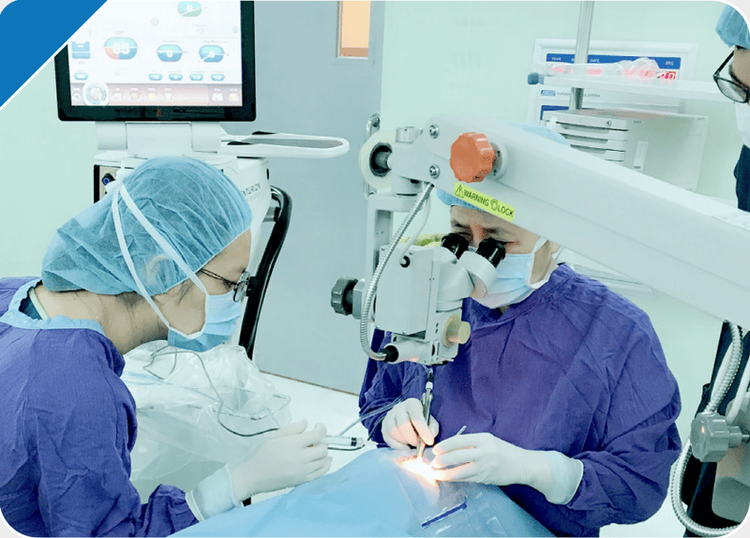
Mổ Phaco vẫn là phương pháp hiện đại và hiệu quả để điều trị đục thủy tinh thể
2. What to prepare for cataract surgery?
Indications for cataract surgery will depend on the degree of vision impairment of the patient. If visual acuity is less than 4/10, surgery will be considered. In addition, it is necessary to pay attention to other factors such as age, nature of work, living conditions, ... of the patient to have appropriate indications.To avoid losing travel time and avoiding post-operative effects, patients need to prepare well before the procedure. Some important notes include:
2.1 Checking and performing necessary tests After being diagnosed with cataracts and having surgery, the patient needs to be examined and carried out the necessary tests. . Specifically:
Blood test: Need to fast in the morning before taking blood; General internal examination, including electrocardiogram. Depending on the patient's general medical condition, the doctor may order additional tests and imaging tests; Ultrasonography of the eye, measuring the power of the cornea to calculate the power of the artificial lens. If the tests show normal results, the doctor will advise the patient to use the right type of artificial lens and schedule an appointment for Phaco surgery. In case the patient has high blood pressure, cardiovascular disease, diabetes, etc., the doctor will give stable treatment of the above diseases before performing cataract surgery.
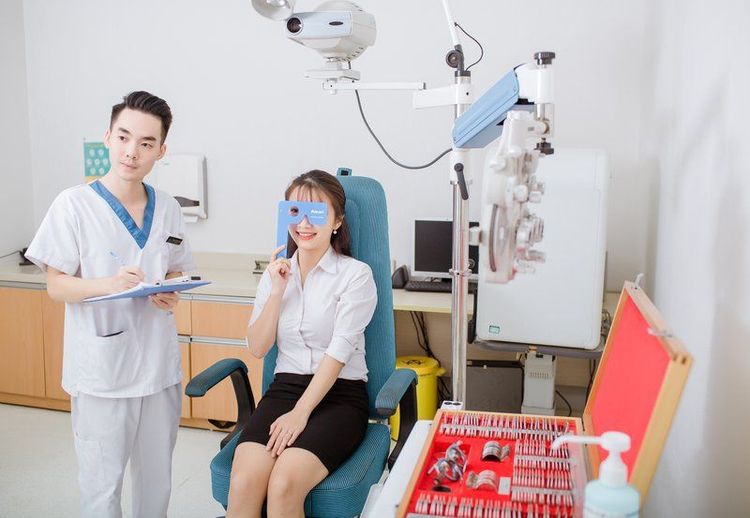
Bệnh nhân được kiểm tra và thực hiện những xét nghiệm cần thiết trước khi tiến hành phẫu thuật

Bệnh nhân cần tuân thủ chế độ sinh hoạt và uống thuốc theo chỉ định của bác sĩ
Vinmec International General Hospital with a system of modern facilities, medical equipment and a team of experts and doctors with many years of experience in medical examination and treatment, patients can rest assured to visit. examination and treatment at the Hospital.
Please dial HOTLINE for more information or register for an appointment HERE. Download MyVinmec app to make appointments faster and to manage your bookings easily.




